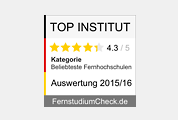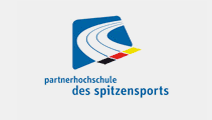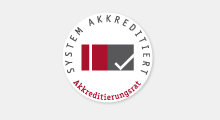| Information | |
|---|---|
| Title | Dr. |
| Last Name | Abufouda |
| Alternative spelling | "محمد أبو فودة" |
| First Name(s) | Mohammed |
| Researchgate | link |
| Google Scholar | link |
| ORC ID | link |
| TU Kaiserslautern Postfach 3049 67663 Kaiserslautern | |
| abufouda [at] cs.uni-kl.de | |
| link |
Research interest:
I am interested in the following research areas:
- Complex network analysis
- Machine learning
- Computational social science
Education:
- 2013-2018 (expected): Ph.D computer science, Technical University of Kaiserslautern
- 2011-2013: M.Sc. computer science, Technical University of Kaiserslautern
- 2001-2006: Bachelor of computer engineering, Islamic University of Gaza
Work experience:
-
Teaching
- Graph theory: entire lectures of SS'15, partly SS'16, partly SS'17
- Complex network analysis: partly WS'14-15, partly WS'16-17
-
Teaching assistant:
- Complex network analysis WS'13-14, WS'14-15, WS'15-16, WS'16-17
- Graph theory SS’13, SS'14, SS'15, SS'16, SS'17
-
Research assistant:
-
Software engineer (Feb-2007 – Jul-2010 ): Ministry of interior, Palestine
Publications:
- Mohammed Abufouda and Katharina A. Zweig: Stochastic Modeling of the Decay Dynamics of Online Social Networks. In: CompleNet 2017. Springer Proceedings in Complexity. Springer, pre-print, Presentation, Poster
- Mohammed Abufouda, Katharina A. Zweig: “A Theoretical Model for Understanding the Dynamics of Online Social Networks Decay”, 2016, arXiv pre-print.
- Mohammed Abufouda, Katharina A. Zweig: “Link Assessment in Social Networks Using Multiple Associated Interaction Networks”, Machine learning summer school, 2016, Universidad Católica San Pablo, Arequipa, Peru. (poster)
- Mohammed Abufouda, Katharina A. Zweig: “Are We Really Friends?: Link Assessment in Social Networks Using Multiple Associated Interaction Networks”, WWW ’15 Companion Proceedings of the 24th International Conference on World Wide Web: 771-776. pdf
- Mohammed Abufouda, Katharina A. Zweig: “Interactions around social networks matter: Predicting the social network from associated interaction networks”, International conference on Advances of social network analysis and mining ASONAM’14: 142-145. pre-print
- Mohammed Abufouda: “CRATER: Case-based Reasoning Framework for Engineering an Adaptation Engine in Self-Adaptive Software Systems“, Technische Universität Kaiserslautern, Fachbereich Informatik, 2015.
- Mohammed Abufouda: “Quality-Aware Approach for Engineering Self-Adaptive Software Systems”, Third international Conference on Information Technology Convergence and Services, 2014, Zurich, Switzerland. pdf
- Mohammed Abufouda: “A framework for enhancing performance and handling run-time uncertainty in self-adaptive systems”, International Journal of Software Engineering & Applications; 2014, Vol. 5 Issue 1, p73. pdf
- Mohammed Abufouda: “CRATER: Case-based Reasoning Framework for Constructing An Adaptation Engine in Self-Adaptive Software Systems”, Master Thesis, 2012.pdf
- Grimnes Gunnar Aastrand, Malte Kiesel, Mohammed Abufouda, and Armin Schröder: “Semantic Integration through Linked Data in the iGreen project”, In GIL Jahrestagung, pp. 107-110. 2012. pdf
Events Attended:
- Complenet17: Complex networks international conference, Dubrovnik, Croatia. (Presentation, Poster)
- MLSS'16: Machine Learning Summer School, Arequipa, Peru. (Poster Presented)
- NetSci-X'16: International school and conference on network science, Wroclaw, Poland.
- NetSci'15: International school and conference on network science, Zaragoza, Spain.
- ASONAM'15, International Conference on Advances in Social Networks Analysis and Mining, Paris, France. (Demos and Exhibitions co-chair)
- WWW'15: International conference of World Wide Web, Florence, Italy. (Talk given)
- ASONAM'14: International Conference on Advances in Social Networks Analysis and Mining, Beijing, China. (Talk given)
- ECCS'14: European conference on complex systems, Lucca, Italy. (Talk given)
- Network factory: a network science summer school 2013, Höllviken, Sweden
Master theses for students:
If you are interested in doing your master thesis with our group, please contact me as I have some open interesting topics. It is preferable that you have already finished the course complex network analysis.



![[logo of the department of CS]](/en/logos/logo_fbi_167x60.png)




